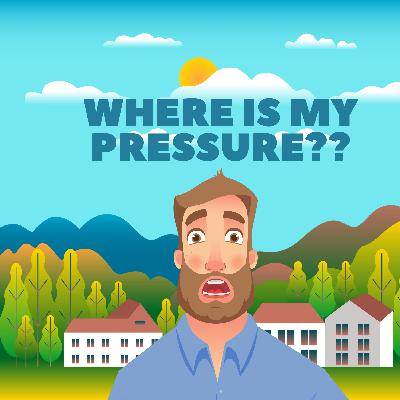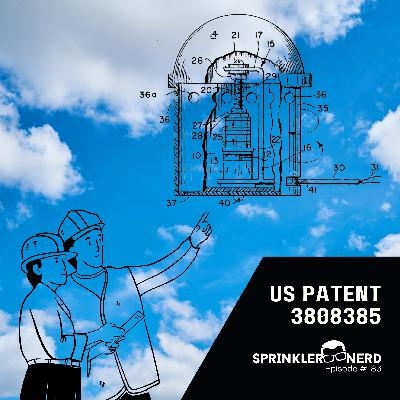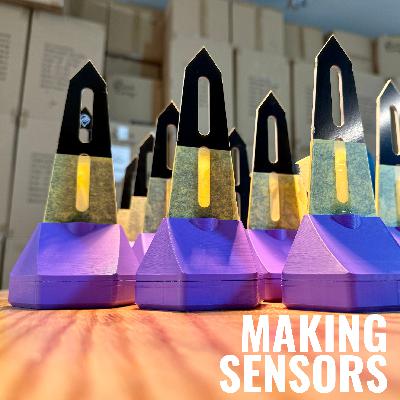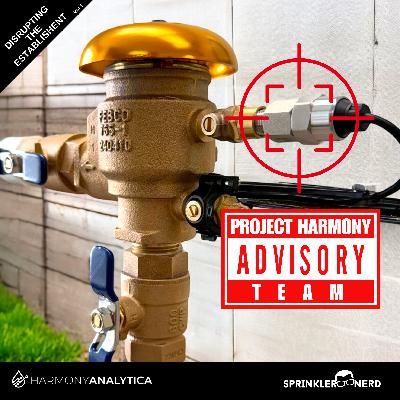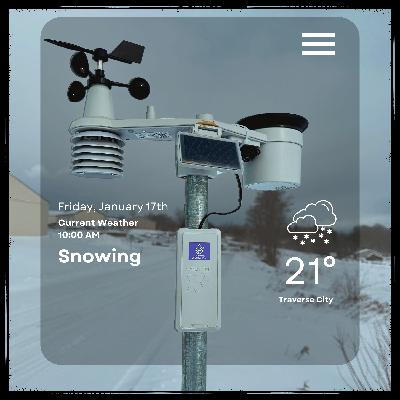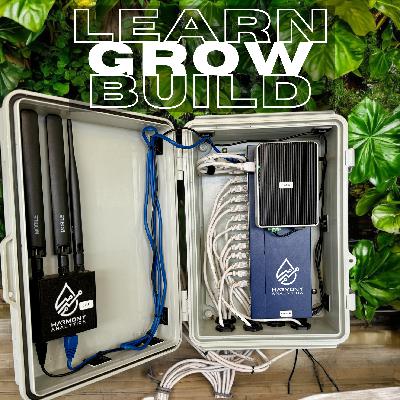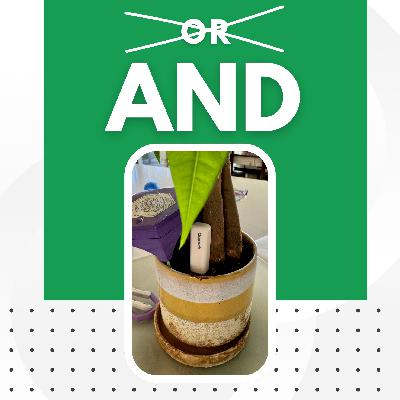#168 - Houston We Have A Pressure Problem
Description
Andy Humphrey: Hey, what's up, my friends? Welcome back to another episode of the Sprinkler Nerd Show. I'm your host, Andy Humphrey. Today, I'm going to share with you—how do I describe this?
Andy Humphrey: A question that came into Sprinkler Supply Store for me that turns out to be, I think, some really relevant content to discuss with you guys. And I think probably most of you could relate to this question that the homeowner has. And, I wanted to tie this together in a couple of ways. Number 1, we're having a lot of success, and we have had a lot of success with software on our e-commerce site called LeadFerno. L-E-A-D F-E-R-N-O, LeadFerno, and LeadFerno is a texting tool that acts like web chat.
Andy Humphrey: And so what happens is there's a little pop-up, which obviously can be annoying at times, that, on the website, to reach us, to reach customer service, but instead of chatting there, it redirects through the phone so you can use your phone and the text message feature or messenger to communicate with us. And personally, I wish more sites used this because I would say half the time when I'm on some other website using the chat feature, you know, I'm waiting for someone, let's say, for the chat to get back to me. So I have another tab open, and I don't have my volume up. And then I get distracted, and then 30 minutes go by.
Andy Humphrey: And I think, oh, shoot. I had a live chat going. I forgot about it. I go back to the tab. And then the chat has ended because I didn't respond, and it just seems like web chat is good if the other person is right there and they're chatting with you quickly. But that's not always the case.
Andy Humphrey: Sometimes the chat agents have to go and look something up or tell you to hold, and sometimes you have to leave your desk. You just can't sit there on chat. And so what we have found is that by using the phone as the texting tool, which it's very good at, then people can text wherever they are. You know what? If you gotta get up and get in your car and drive somewhere else, we can still text with you because you have your text device in your pocket instead of having to sit at your computer.
Andy Humphrey: It's been a great way for people to send us pictures. "Hey, I need a replacement diaphragm for this valve. I don't know what valve this is. Okay, great. Send us a picture." And so LeadFerno has been an amazing tool for communicating with our customers because it doesn't require them to be locked to their computer screen. They can text through their phone. They can also save the number and text us any time.
Andy Humphrey: And if you'd like to try this, go to sprinklersupplystore.com. It'll pop right up, send us a message, and that will come into our text service, which you can either manage through a web browser, or you can put the app right on your phone. Then you can text back and forth with your customer. And I think that there are probably some parallels that if you have, you could be a solo entrepreneur in the irrigation industry, and maybe that would work. But there might be some parallels for capturing leads through the website and getting back to people quickly, via LeadFerno. So check it out and, you know, give it a try.
Andy Humphrey: This is not sponsored by LeadFerno. I just thought I would share because the topic for today, which is the question that this homeowner from Houston had—the inquiry came in through LeadFerno. So that's how we actually captured this. And I just thought that it would be a pretty fun way for me, specifically not to have to dream up new content to share with you. So this is a real customer inquiry that I'm going to read to you right now.
Andy Humphrey: Actually, what I'm going to do is have an AI voice read this out loud so that it doesn't sound like me, and then we can talk about the response. So I'm going to roll the intro here, and then we'll get right into this question coming in from Roger in Houston. If you're old or new, who designs, installs, or maintains high-end residential, commercial, or municipal properties, and you want to use technology to improve your business to get a leg up on your competition, even if you're an old school irrigator from the days of high-olive systems, this show is for you.
Roger: Hey, Andy. This is Roger from Houston. Thanks for maintaining such a helpful website for homeowners with sprinkler systems. For 26 years, we've enjoyed excellent water pressure due to our location downhill from the city's water supply. Unfortunately, this year, the pressure decreased unexpectedly, before being restored to around 80 PSI.
Roger: This was sufficient to operate our sprinkler systems effectively. However, the city had to reduce the water flow to 60 PSI at the request of a few residents who are experiencing excessive pressure. This adjustment has rendered our sprinkler system, as well as my neighbors', nearly useless. This situation was confirmed by two independent sprinkler experts.
Roger: From what I understand, the city is considering the installation of irrigation booster pumps to address the issue. If excessive water pressure continues to be a problem, residents might be able to adjust their pressure-reducing valves, PRVs, to suit their needs, allowing the city to maintain an 80 PSI flow through the main pipes. Also, Andy, you mentioned you're available via text, email, and phone calls. I'd appreciate a chance to discuss this more at your convenience if you're still offering consultations. Our property has 7 irrigation zones, though currently, we're only using 4.
Roger: As I mentioned, for over 2 decades, we've had reliable water pressure ranging from 80 to 100 PSI. Thanks to our favorable location. My home and sprinkler system each have their own PRV set to 80 PSI. Furthermore, I received a voicemail from a city supervisor who, like others, seems unaware of the underlying issues with our water system. Despite longstanding high water pressure, recent adjustments have significantly lowered it to 60 PSI, which is insufficient for our needs. Our systems are becoming ineffective due to these changes, not due to any alterations in the city's water pressure policy.
Roger: But because of how the valves are being managed. Additionally, I spoke with Ashley at Waterworks, expressing my concerns that Ken, a supervisor, might not be fully aware of the situation here. Unlike two other colleagues who have been with the city for 35 years, after enjoying stable water pressure for so long, it's frustrating to face these sudden changes. I appreciate any thoughts you might have.
Andy Humphrey: Okay. So if that wasn't clear, I would just say hit the back button, you know, go back, hit 30 seconds, backtrack, go back and play it again. But essentially, Roger appreciated our website. He'd watched a bunch of YouTube videos I'd made, I think he had watched one, specifically on pressure. And so he's encountering a situation in his neighborhood, and he's been, as you said, in his neighborhood for 26 years.
Andy Humphrey: He's always had awesome pressure. And apparently, the city lowered the pressure, and he can't get a clear answer. But this brings up a really interesting point about pressure because it's not always the same. Andy, I'm not sure—you could correct me if I'm wrong—if this might be the case in your area of the country. I don't think cities guarantee a minimum pressure rating either.
Andy Humphrey: So I don't think you can get something from the city that says, "We guarantee 65 PSI to your house." I don't think that exists. And, you know, the system's twenty-six years old. If it used to run great at a higher pressure, my first thought is that it was likely designed for that higher pressure, which is another great conversation piece because I think it would be very important to document the specification of your design. In other words, remind the homeowner that you, or the commercial client, that you are designing the system to operate at 60 PSI downstream of the backflow at 15 gallons a minute. For example, put that in your contract if that is what you're designing the system for so that if the performance of the system becomes questionable at some point in the future, and it turns out that it is because of pressure, and to diagnose this, you've tested the pressure, and it's 45. Downstream of the backflow, then you can reference your original signed contract. It states you designed the irrigation system at 65 PSI, downstream of the backflow preventer, and it is now not at 65.
Andy Humphrey: So this is not this is not caused by you. It may still be, you know, air quotes here, "Your problem," but it doesn't mean that your system is now not performing; it means the pressure is not the same as it was when you designed the system. So I think that, you know, as we start to talk a little bit more about pressure, it's important to document some of these things and then see a real-world example here coming from Houston where the city pressure is not what it was.
Andy Humphrey: Apparently, it was because a couple of homeowners complained that their pressure was too high, so they lowered it for everyone, which, again, I haven't—I have no way to prove this or not. I would think it would be easier for those couple of homes just to put in a PRV. Instead of lowering it for everyone and then requiring those who need more pressure to put in a booster pump. But again, it could be. If you recall a couple of episodes ago, when I was talking with Paul Bassett, he mentioned that sometimes aging infr

